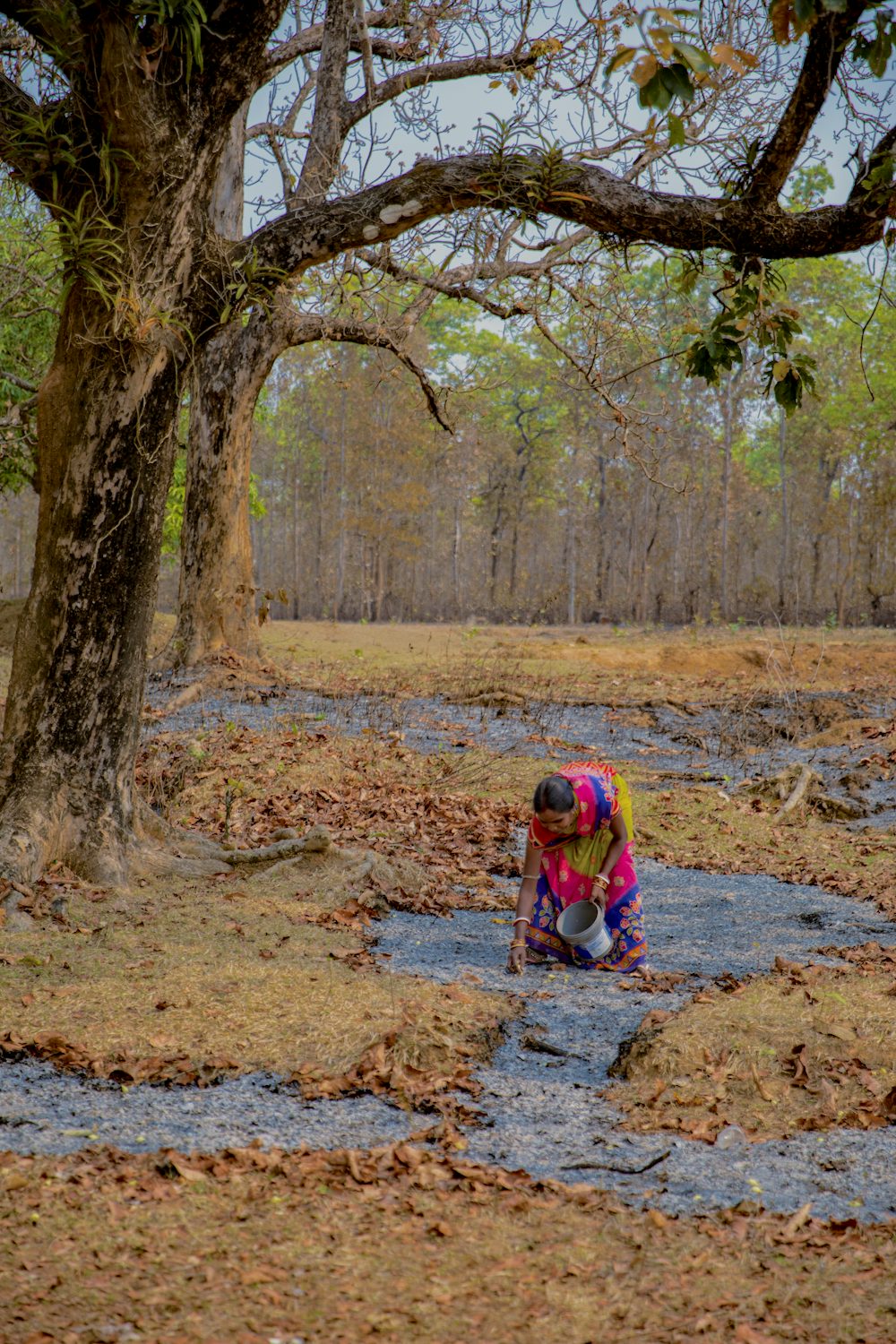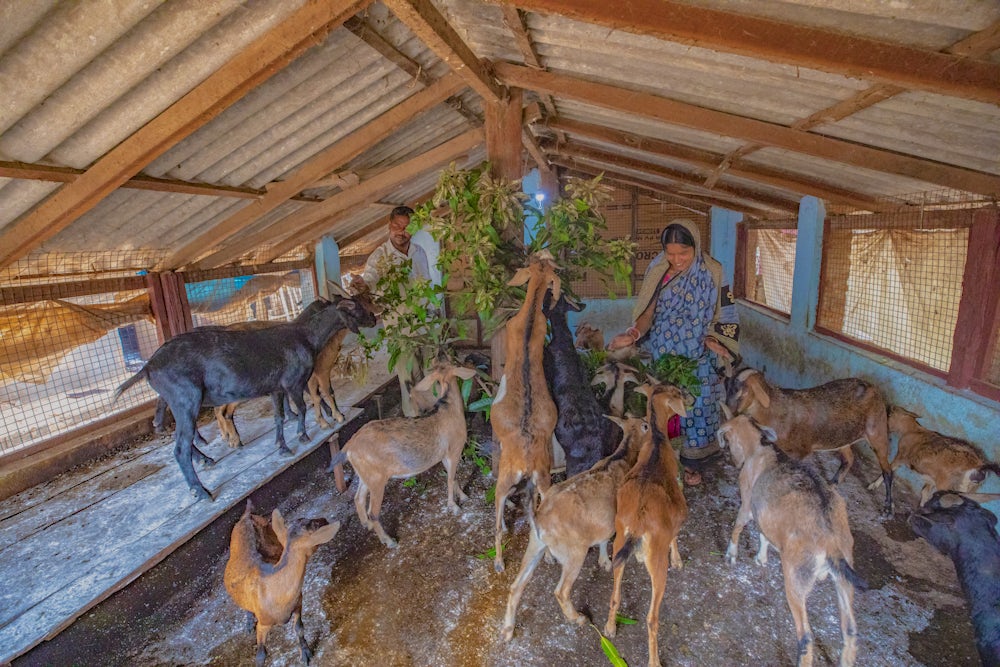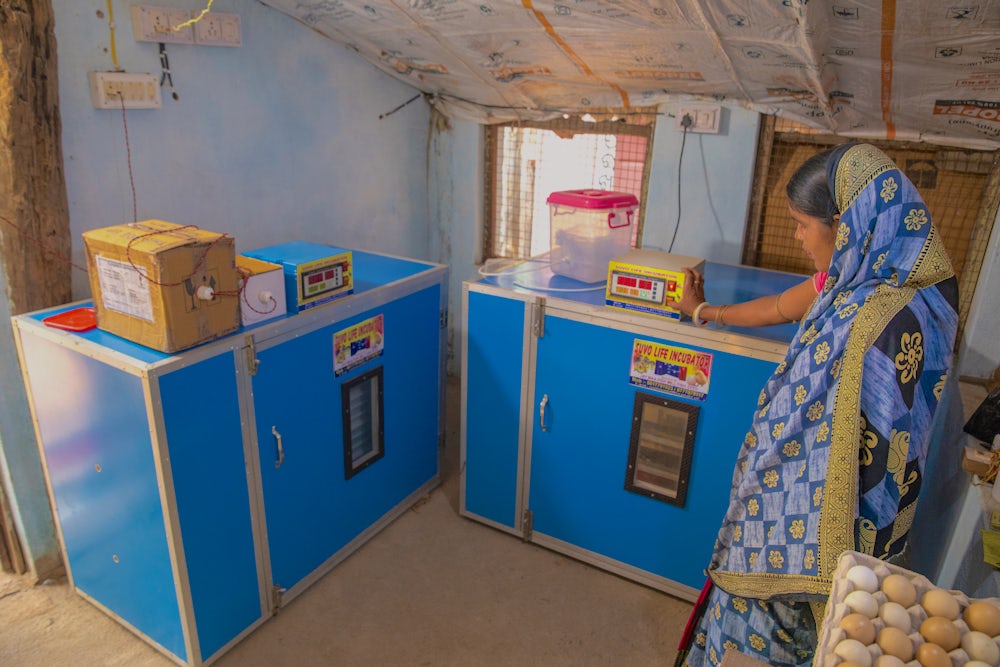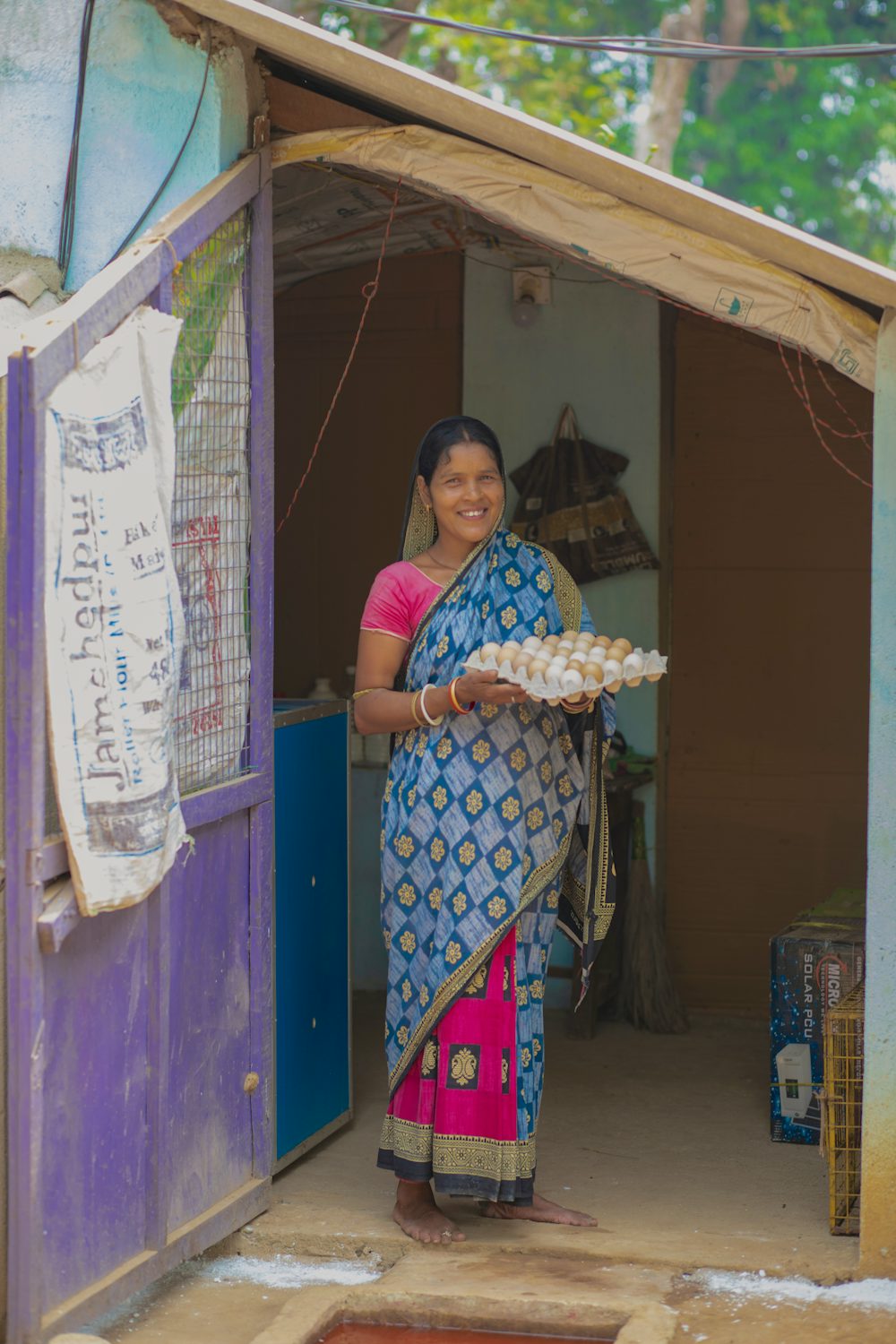
At the break of dawn, most women in the villages of Thakurmunda leave their homes and march toward the forest, singing tribal songs and folklores and carrying baskets woven of golden grass on their heads, intent on collecting mehuli flowers fallen from the local mahua trees.
The grass under the mahua trees is burnt to ashes, the small fragrant flowers with tender white petals glimmering against the dark gray ground. Spending hours scrounging the forest and collecting baskets of mehuli flowers to sell in local markets adds a few more cents in the hands of these tribal women, most forced to toil and tire their feet this way due to a lack of other livelihood options.
In this challenging agricultural environment, where poverty is high and means to earn a stable income are scarce, Heifer is partnering with a community of would-be entrepreneurs to create opportunity for themselves — and each other.
Farming provides jobs to millions in India’s eastern state of Odisha, where the district of Thakurmunda is located, but it also results in unemployment, food insecurity and migration in the agriculturally dormant months of the year: Odisha’s agriculture is rainfed and supports only a single round of crop cultivation annually.
“We have some land and we grow paddy [rice]. But, there is no irrigation system. We depend on [the] rain,” shared Babilata Das, a farmer in Thakurmunda, voicing the struggle of millions of others who live at the mercy of the erratic monsoon showers.

Mainly dependent on small-scale farming and selling forest produce, such as mehuli flowers, families like Babilata’s have little to fall back on. Women often pick up activities such as rearing goats and poultry to shoulder their economic and food needs during periods of agricultural distress, but poor breeding practices, inadequate shelter and lack of health services increase the risk of disease and attack by predators — all leading to frequent animal mortality, small herd sizes and unstable financial returns.
“We have been rearing goats and poultry for very long, but it wasn’t a profitable business,” said Babilata, explaining the struggle she has historically shared with most of the livestock producers in her village. “We didn’t know how to do it in a systematic manner, so there were no significant returns.”
Heifer helped smallholder farmers in Thakurmunda strengthen their farms through the Mayurbhanj Socio-Economic Development (MSED) project, which promoted better goat rearing and generated awareness around backyard poultry production. More recently, we’re supporting farmers through Heifer and Cargill’s Hatching Hope India program, which aims to improve income and nutrition through poultry. Hatching Hope India was introduced in Thakurmunda following the work and achievements of the MSED project.

As part of these efforts, we’ve provided instruction on effective animal care practices, prevention against diseases and collective business development. Heifer also trains and supports microentrepreneurs, such as community animal health service providers and feed mill and hatchery operators, who provide inputs and services to producers while boosting the rural economy.
Babilata and her husband, Sanjay, first began attending Heifer’s meetings and trainings several years ago. Sanjay had obtained his diploma in paraveterinary science early in his life but could not build a career in the field due to inadequate local mentoring and support. Through Heifer, he was able to put his knowledge to use and undergo training sessions organized by Heifer’s veterinary experts. Sanjay polished his skills and has since started training other animal health service providers, creating a front-line network supporting thousands of livestock producers in their villages.
Working together to expand their goat and poultry businesses and support other producers in this effort, Babilata and Sanjay saw their income grow.
“I had learned about animal care. I learned how to care for them, what to feed them and where to keep them,” Babilata shared. “Our flock size used to be 5 to 10 birds and we would hardly be able to earn 3,000 to 4,000 Indian rupees [around $38 to $50] in a year from poultry. Now I am keeping more than 50 birds and we earn more than 15,000 Indian rupees [around $188] from poultry alone in a year.”
Alongside their booming poultry business, the demand for their goats also spiked. “They take very good care of their livestock,” shared Debasish Rout, project coordinator for Heifer’s partner agency in the area.

“Their goats have a different sheen and traders are often ready to pay [an] extra amount to buy from them.” As their household income grew, Babilata and Sanjay started other small enterprises. “We invested that money to start a small grocery store and a confectionary shop. We purchased a paddy hulling machine. We are earning from all these sources,” Babilata said. “We have learnt about self-reliance and [now] it’s about living it.”
With additional support from Hatching Hope, Babilata and Sanjay decided to build on the fruits of their labor and expand their poultry business to include a small-scale, solar-powered hatchery. The couple buys eggs from local poultry producers and keeps them warm in an incubator attached to a solar panel. When the chicks peck their way out of their shells, they are vaccinated to protect them from diseases and sold to nearby poultry rearers, who raise them and keep the supply in the market — and nutrition and income for their families — intact.
“This is [a] new process and a good innovation for us. You won’t see another hatchery anywhere in our village,” Babilata shared, confidently operating the incubating machines. “The chicks from [our] hatchery will help us earn, and the people who raise these birds will also earn well. We all win.”
Through increasing their sources of income, Babilata and Sanjay have been able to secure their future and build resilience in the face of tribulations.
“We are eating better. We are sending our children to a good school. Our living standards have improved. We know we are more financially secure than we were,” Sanjay shared.
The couple’s success is also kindling the spirit of entrepreneurship among their community members, inspiring others to pursue new paths to earning and supporting their families, leaving the days of scavenging mehuli flowers behind — and leading dignified lives.
“We have seen families transform over these months,” shared Debasish. “The visual transformation is evident. Be it women coming out and attending meetings, undergoing training, executing their learnings or becoming more aware of their potential — the change is real.”